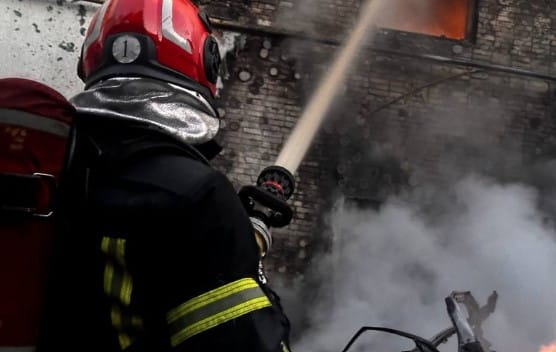Pope Francis Calls for Peace in Ukraine During Final Easter Message

Introduction
On Easter Sunday, April 20, 2025, Pope Francis delivered what would be his final “Urbi et Orbi” (To the City and the World) Easter message from the balcony of St. Peter’s Basilica. In a message marked by both spiritual hope and urgent geopolitical appeals, the pontiff called for a “just and lasting peace” in Ukraine, compassion for migrants, and an end to violence in conflict zones across the globe. The address, read aloud by an aide as Francis sat in his wheelchair, resonated across a Europe beset by war in Ukraine, migration crises, and political change. The Pope’s message was amplified by his brief but symbolically significant meeting with U.S. Vice President JD Vance, highlighting the ongoing tensions between the Vatican and the Trump administration over migration and humanitarian policy. This report examines the content and context of Pope Francis’s Easter message, its reception, and its significance for Europe and the wider world at a moment of profound uncertainty and transition.
The Final Easter Address: Themes and Appeals
A Universal Call for Peace
Pope Francis’s Easter message was a sweeping plea for peace, reconciliation, and respect for human dignity. He began by proclaiming the resurrection of Christ as a triumph of “love over hatred, light over darkness, and truth over falsehood”[1][2][3]. He lamented the persistence of evil and violence in the world, but insisted that “evil no longer has the upper hand” for those who accept the grace of Easter.
The Pope’s address was notable for its directness and breadth. He invoked the suffering of people in Ukraine, Gaza, the Holy Land, Africa, and Myanmar, and called on the world’s leaders to “not yield to the logic of fear which only leads to isolation from others, but rather to use the resources available to help the needy, to fight hunger and to encourage initiatives that promote development”[1:1][2:1][3:1].
Ukraine: A Plea for a “Just and Lasting Peace”
Francis’s appeal for Ukraine was clear and heartfelt:
“May the risen Christ grant Ukraine, devastated by war, his Easter gift of peace, and encourage all parties involved to pursue efforts aimed at achieving a just and lasting peace.”[2:2][4]
He did not mention specific political solutions or sides, but his emphasis on a “just and lasting peace” was widely interpreted as a call for negotiations that respect Ukraine’s sovereignty and territorial integrity. The Pope’s words come as the war continues to rage, with recent failed ceasefires and mounting civilian suffering.
Migration: Compassion and Human Dignity
Migration was another central theme. Francis called for “compassion for the world’s marginalized people,” including migrants, refugees, and those forced to flee by conflict or poverty[1:2][3:2][5][6]. He denounced the “contempt” often shown toward the vulnerable and the “great thirst for death, for killing” seen in the world’s many conflicts.
“How much contempt is stirred up at times towards the vulnerable, the marginalized, and migrants!”[1:3][7]
He urged the faithful to “revive our trust in others, including those who are different than ourselves, or who come from distant lands, bringing unfamiliar customs, ways of life and ideas! For all of us are children of God!”[1:4][2:3][3:3]
Other Global Crises
Francis’s message extended to numerous other flashpoints:
- Gaza and the Holy Land: He called for a ceasefire, the release of hostages, and humanitarian aid for Gaza’s starving people, while warning of rising anti-Semitism and the suffering of Christian communities in the Middle East[1:5][2:4][3:4].
- Africa: He prayed for peace in the Democratic Republic of the Congo, Sudan, South Sudan, the Sahel, the Horn of Africa, and the Great Lakes region, and for Christians who cannot freely profess their faith[2:5][3:5].
- South Caucasus and Balkans: He expressed hope for reconciliation between Armenia and Azerbaijan and for harmony in the Western Balkans[2:6].
- Myanmar: He welcomed a recent ceasefire announcement as a “sign of hope” for a country devastated by war and natural disaster[2:7][3:6].
Disarmament and Freedom
The Pope also called for “true disarmament,” warning that the need for defense “must not turn into a race to rearmament.” He insisted that “there can be no peace without freedom of religion, freedom of thought, freedom of expression and respect for the views of others”[1:6][2:8][3:7].
The Meeting with U.S. Vice President JD Vance
A Symbolic Encounter
On Easter Sunday, U.S. Vice President JD Vance, a Catholic convert and a key figure in the Trump administration, met briefly with Pope Francis at the Domus Santa Marta. The meeting was cordial but carried significant political undertones, given the Vatican’s ongoing criticism of the Trump administration’s hardline migration policies and deep cuts to foreign aid[8][9][10][7:1][11][5:1][6:1].
Vance, accompanied by his family, exchanged Easter greetings with the Pope, who presented chocolate eggs and rosaries to the vice president’s children. The encounter was one of the last public meetings of Francis’s life, as he passed away the following morning[1:7][9:1][4:1][6:2].
Migration: A Point of Tension
The relationship between the Vatican and the Trump administration has been strained by the U.S. government’s mass deportation plans and reductions in humanitarian programs. Pope Francis has repeatedly criticized these policies as a “disgrace” and a betrayal of Christian values[10:1][7:2][5:2]. Vance, for his part, has defended the administration’s approach, sometimes invoking Catholic theology to justify prioritizing American welfare over that of migrants[7:3][11:1][5:3].
During the Easter encounter, Francis’s message—delivered in his address—was seen as a pointed reminder of the Church’s commitment to migrants and the vulnerable. Vatican officials, including Cardinal Pietro Parolin, met with Vance the previous day for more formal discussions, emphasizing the need for “serene collaboration” and the Church’s “valuable service to the most vulnerable people”[5:4][6:3].
European and Global Context
War in Ukraine: A Divided Continent
Pope Francis’s call for peace in Ukraine comes at a time of deep uncertainty for Europe. The war has entered its fourth year, with no end in sight and millions displaced. The European Union has stepped up military and financial support for Ukraine, but political divisions persist, especially as the U.S. signals possible shifts in its own commitment[12][13].
European leaders have hailed the Pope’s message as a moral compass, even as they grapple with the practical challenges of security, migration, and economic stagnation[14][13:1]. The EU’s internal debates over asylum policy, border controls, and defense spending reflect the broader anxieties of a continent at a crossroads[15][14:1].
Migration: A Continent Debates Its Soul
Migration remains one of the most contentious issues in European politics. Germany, facing a leadership transition, is debating stricter border controls and asylum policies[15:1]. The EU as a whole has adopted more restrictive measures, even as it faces criticism from humanitarian organizations and the Church for failing to uphold its values[15:2][14:2][16][5:5].
Pope Francis’s message was a direct challenge to these trends, urging Europeans to resist the “logic of fear” and to “break down the barriers that create division and are fraught with grave political and economic consequences”[1:8][2:9][3:8].
Political Shifts and Social Tensions
Europe’s political landscape is shifting, with the rise of right-wing parties, debates over national identity, and the erosion of centrist consensus[14:3][13:2]. The Pope’s emphasis on solidarity, dialogue, and respect for diversity stands in contrast to the rhetoric of exclusion and division that has gained ground in many countries.
The Legacy of Pope Francis
A Papacy Defined by Advocacy
Pope Francis’s final Easter message encapsulated the themes that defined his papacy: a relentless advocacy for the poor and marginalized, a commitment to peace and reconciliation, and a challenge to the powerful to use their resources for the common good[1:9][2:10][3:9].
“These are the ‘weapons’ of peace: weapons that build the future, instead of sowing seeds of death!”[1:10][2:11][3:10]
His death, announced the morning after Easter, marks the end of an era for the Catholic Church and for global moral leadership[1:11][9:2][4:2][6:4].
A Challenge to Leaders
In his final words, Francis appealed to “all those in positions of political responsibility in our world not to yield to the logic of fear,” but to “help the needy, to fight hunger and to encourage initiatives that promote development”[1:12][2:12][3:11]. His message was a call to conscience for leaders in Europe and beyond, urging them to pursue justice, compassion, and peace.
Conclusion
Pope Francis’s Easter message of 2025, delivered on the eve of his death, was both a benediction and a challenge. In calling for a just peace in Ukraine, compassion for migrants, and an end to violence worldwide, he spoke to the deepest anxieties and hopes of a continent and a world in crisis. His words, echoed in the halls of power and among the faithful, will continue to resonate as Europe and the global community confront the intertwined challenges of war, migration, and political change. The legacy of his final Easter—an unwavering commitment to human dignity and peace—will remain a touchstone for all who seek a more just and compassionate world[1:13][2:13][3:12][4:3][6:5].
https://abcnews.go.com/International/read-pope-francis-final-easter-address/story?id=121006377 ↩︎ ↩︎ ↩︎ ↩︎ ↩︎ ↩︎ ↩︎ ↩︎ ↩︎ ↩︎ ↩︎ ↩︎ ↩︎ ↩︎
https://www.vatican.va/content/francesco/en/messages/urbi/documents/20250420-urbi-et-orbi-pasqua.html ↩︎ ↩︎ ↩︎ ↩︎ ↩︎ ↩︎ ↩︎ ↩︎ ↩︎ ↩︎ ↩︎ ↩︎ ↩︎ ↩︎
https://www.vaticannews.va/en/pope/news/2025-04/pope-francis-urbi-et-orbi-easter-2025-peace-gaza-drc-sudan-arms.html ↩︎ ↩︎ ↩︎ ↩︎ ↩︎ ↩︎ ↩︎ ↩︎ ↩︎ ↩︎ ↩︎ ↩︎ ↩︎
https://www.newsweek.com/pope-francis-final-acts-easter-message-meeting-jd-vance-2062036 ↩︎ ↩︎ ↩︎ ↩︎
https://www.ncronline.org/vatican/vatican-news/top-vatican-diplomats-meet-vice-president-jd-vance-discuss-migrants-refugees ↩︎ ↩︎ ↩︎ ↩︎ ↩︎ ↩︎
https://www.wsj.com/world/europe/vance-meets-francis-ahead-of-papal-easter-message-urging-compassion-for-migrants-c3056b11 ↩︎ ↩︎ ↩︎ ↩︎ ↩︎ ↩︎
https://www.yahoo.com/news/pope-francis-gave-jd-vance-131026306.html ↩︎ ↩︎ ↩︎ ↩︎
https://apnews.com/article/pope-vance-us-migration-c9fc577cabff138de7bd8026133994fc ↩︎
https://www.pbs.org/newshour/politics/one-of-pope-francis-final-meetings-before-death-was-with-vance-on-easter-sunday ↩︎ ↩︎ ↩︎
https://www.reuters.com/world/pope-francis-meets-with-us-vp-vance-vatican-says-2025-04-20/ ↩︎ ↩︎
https://www.cnn.com/2025/04/19/europe/vance-vatican-officials-meeting-migrants-intl/index.html ↩︎ ↩︎
https://www.atlanticcouncil.org/blogs/ukrainealert/a-pragmatic-peace-plan-for-ukraine/ ↩︎
https://carnegieendowment.org/research/2025/04/a-turning-point-or-not-principles-for-a-new-european-order?lang=en ↩︎ ↩︎ ↩︎
https://www.thenation.com/article/world/european-union-right-left-parties-democracy/ ↩︎ ↩︎ ↩︎ ↩︎
https://www.dw.com/en/how-germanys-leadership-change-could-shape-eu-immigration/a-71674550 ↩︎ ↩︎ ↩︎
https://home-affairs.ec.europa.eu/policies/migration-and-asylum/migration-management/migration-management-welcoming-refugees-ukraine_en ↩︎




